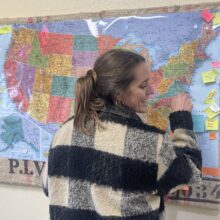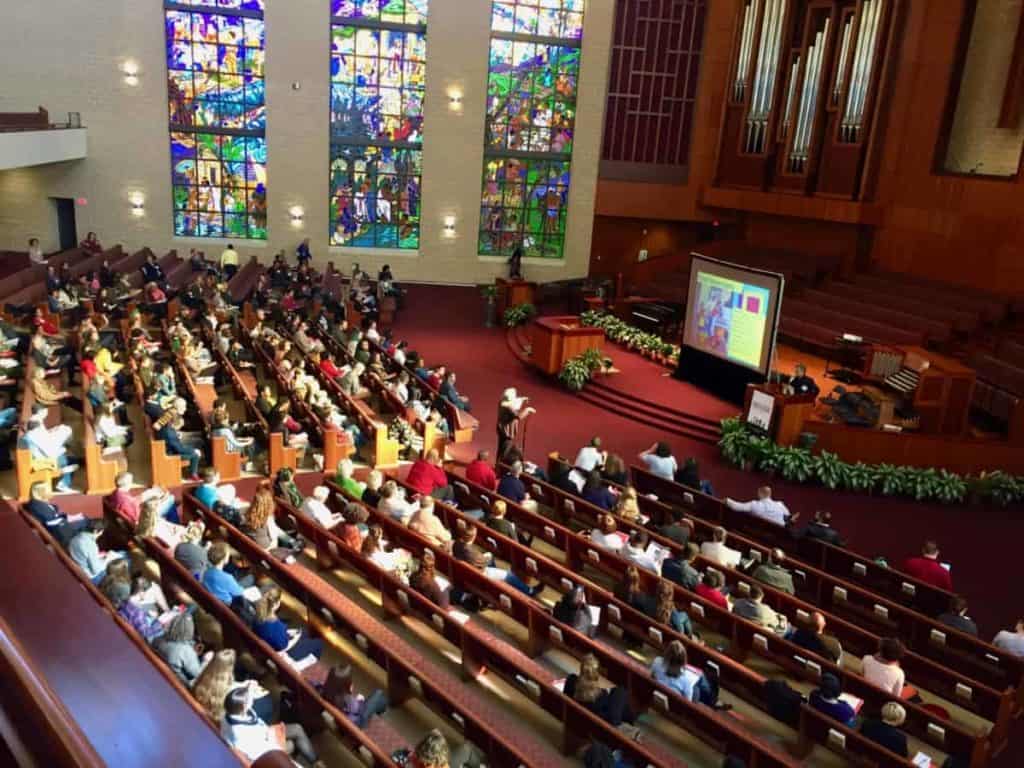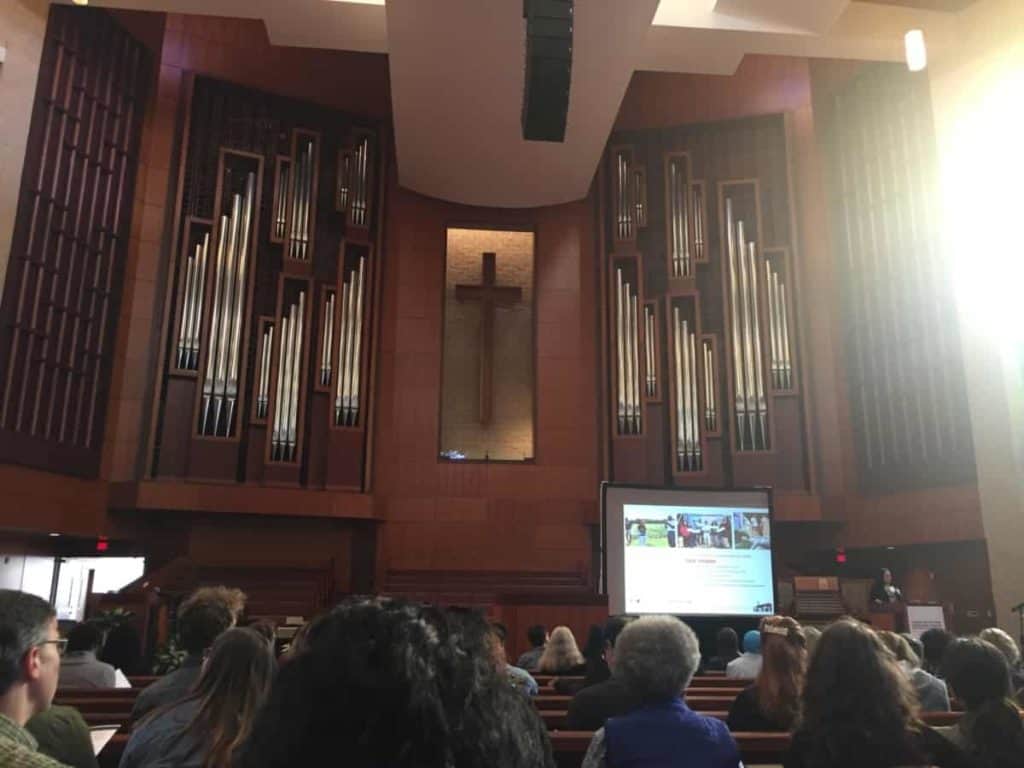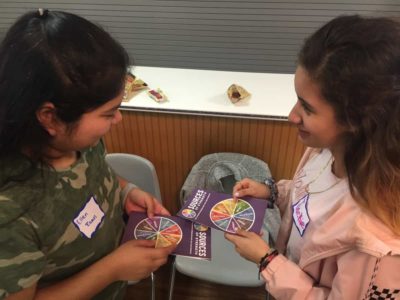“What does it mean to create a system that is good and just for…every human being?”
Kristen Richardson-Frick of The Duke Endowment posed this question to the crowd at Friendship Missionary Baptist Church in Charlotte. In the sanctuary — between floor to ceiling stained glass windows — advocacy groups, farmers, collectives, organizations, and others gathered together for “Called to Action: Uprooting Hunger and Cultivating Justice” put on by the Rural Advancement Foundation International.
Richardson-Frick, the associate director of the Rural Church program, welcomed the crowd and helped kick off the gathering. The two-day conference aimed to address the root causes of hunger and to create conversations around just alternatives for people suffering from food insecurity and the systems that create it.
“The reason I have always wanted to be a farmer is because I believed then and believe now that the farmer is the only free man we have in our race.” — Benjamin Carr, black farmer, 1914
Dr. Monica White, author of Freedom Farmers: Agricultural Resistance and the Black Freedom Movement and a keynote speaker, projected this quote at the beginning of her talk. She focused initially on providing historical context of black farmers and how their work with the land resulted in economic self-reliance and community building. “Most of the ways we define farmers is in terms of ownership of the land. I want to make sure we include all the people who grow the food that we eat,” White said.
First keynote speaker is @thegardengriot, author of Freedom Farmers: Agricultural Reaistance and the Black Freedom Movement. #CometotheTable2019 @rafiusa pic.twitter.com/CVmQCwJ2ox
— EdNC_Faith (@EdNC_Faith) March 12, 2019
She spoke to the ideas of collective agency and community resilience within the food and agricultural system. Audience members joined in with a question and answer portion, where terms such as food desert, food apartheid, and food swamp were discussed. It was argued that food apartheid is a more accurate description of places lacking grocery stores, the ability to purchase healthy produce, and affordable fresh food options, which many refer to as food desert. White expressed that there is not a lack of food in these areas, but a lack of integrated and constructional conditions allowing access for all.
We are with DeLessin “Roo” George-Warren who will be leading our conversation on Tevitalizig Catawba Foodways: History, Present, and Future of Food on Catawba Lands. @rafiusa #CometotheTable2019 pic.twitter.com/SkIdwLXxCb
— EdNC_Faith (@EdNC_Faith) March 12, 2019
The remainder of the day was dedicated to workshops which ranged in topics from food policy advocacy and racial equity to resources for farmers and youth-led change. DeLesslin “Roo” George-Warren hosted an extended workshop entitled “Revitalizing Catawba Foodways: History, Present, and Future of Food on Catawba Lands.”
He spoke to the history of the Native American tribe and its relationship with the land as well as how others can get involved in revitalization. When asked how philanthropies and outsiders can be helpful in rebuilding, he said, “nothing about us, without us,” encouraging all decisions about indigenous people to involve indigenous voices.
Day two keynote speaker, Dr. Eric Holt-Gimenez of Food First, also known as the Institute for Food and Development Policy, began his talk stating: “The cause of hunger is not scarcity, the cause of hunger is injustice.”
Holt-Gimenez believes hunger tracks very closely with poverty, explaining “most of the hungry people in our country work in the food system. They are farm workers or farmers, or work in process plants, or work in fancy restaurants in the back of the house.” He addressed statistics of global hunger, showing that despite increases in food production, populations still go undernourished.
First up, @eholtgim from @foodfirstorg. “The cause of hunger is injustice” #CometotheTable2019 @rafiusa pic.twitter.com/OZCCHsEKiF
— EdNC_Faith (@EdNC_Faith) March 13, 2019
The remainder of the conference was consumed with workshops and networking between organizations and people in the realm of food insecurity. Youth were well-represented and guided some of the breakout sessions. Transplanting Traditions, an organization and farm in Chapel Hill, gave a presentation in “Food Youth Initiative and Theory of Change Model: Youth Change-Makers in the Food System.”
These youth are from @farmtraditions, which envisions a world where all people have access to healthy affordable food, land, education, satisfying work and a space to celebrate culture and to build strong resilient communities. #CometotheTable2019 @rafiusa pic.twitter.com/MxuYVX4Uxk
— EdNC_Faith (@EdNC_Faith) March 13, 2019
This youth perspective further energized the audience and allowed for the intergenerational transfer of knowledge. Multiple groups presented on their local initiatives. Groups were able to learn from one another, building relationships and making connections.
Editor’s note: The Duke Endowment supports the work of EducationNC.




